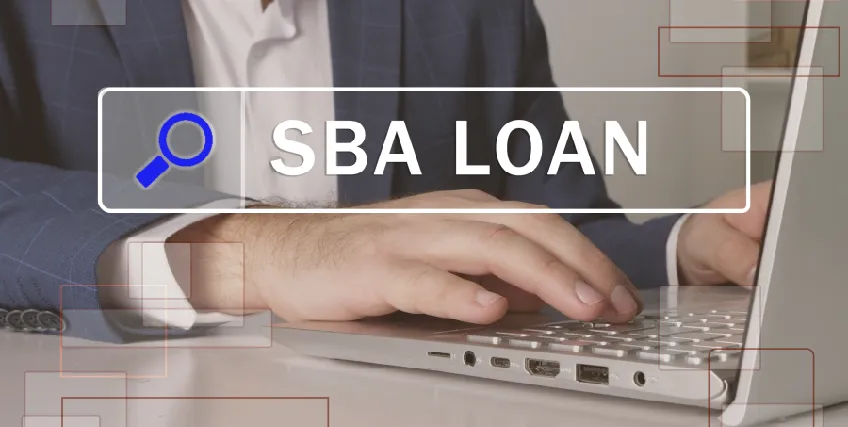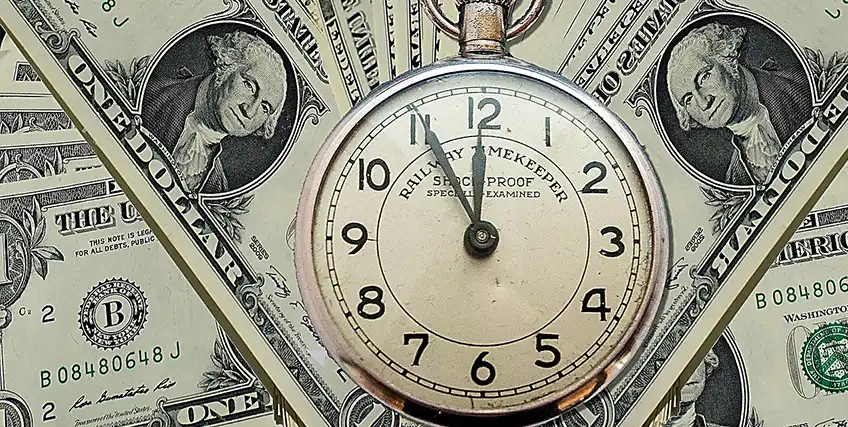
There are many reasons why small businesses may look into getting a loan. Whether you need cash to grow your company, you want to launch a new product or service, or you’re looking to take advantage of new business opportunities, small business loans in Florida can help.
If you’re wondering how to get a business loan in Florida, this guide can help. Many small business loans are offered through the state government in Tallahassee. Others come from federal agencies. Florida small business loans are available throughout the state to a variety of qualified borrowers. We break down some options for Florida business owners here.
Types of Loans Available to Florida Small Businesses
Florida business owners have access to many types of business loans. Many municipalities offer loan programs, so if you’re looking for Miami business loans or Tampa business loans, it’s best to contact your local Chamber of Commerce or search “small business loans near me” or “small business loans Florida” on Google.
Generally speaking, however, Florida entrepreneurs have access to many types of loans. Some of the most common business loan types include:
- Term loans: Lump-sum payments made to a business by a business bank, credit union, or online lender in exchange for a repayment schedule that includes interest.
- SBA loans: Loans that are partially guaranteed by the U.S. Small Business Administration (SBA). There are several SBA loan programs that we’ll go into below.
- Working capital loans: These short-term loans help your business cover operating expenses and may come in the form of business lines of credit, invoice financing, merchant cash advances (MCAs), and other arrangements.
- Commercial real estate loans: Loans designed to help small businesses acquire or build property for commercial use.
- Equipment financing loans: Equipment loans help small businesses acquire equipment necessary to operate.
- Business credit card: While credit cards aren’t exactly a loan, they do allow businesses to spend money now and pay it back later after they’ve earned revenue.
Best Small Business Loans in Florida
There are a number of Florida business loan programs that are unique to the state. These state-wide financing options for Florida small businesses may be just what your business needs to get off the ground or expand into a new market.
Florida Microfinance Guarantee Program
If your business has 25 or fewer employees statewide and has generated an annual revenue of less than $1.5 million in each of the last two years, it could qualify for the Microfinance Guarantee Program, run by Enterprise Florida, Inc.
These business financing options range from $50,000 to $250,000 and come with a guarantee of up to 50 percent. You can apply for them through an approved lender.
Florida Black Business Loan Program
If your business is at least 51 percent black owned, it could get funding from this program. These loans typically range from $2,500 to $75,000, and sometimes up to $150,000.
The loans are available through a limited number of providers, which can be found on the Black Business Loan Program section of the Florida Department of Economic Opportunity website.
SSBCI Loan Participation
The Florida State Small Business Credit Initiative (SSBCI) Loan Participation program offers loan participations to lenders that work with Florida small businesses.
The loans typically range from $250,000 to $5 million. Small business owners have up to five years to pay them back.
To qualify, a business must be Florida-based and have fewer than 750 employees. The money can be used for startup costs, working capital, franchise fees, equipment financing, and other standard business expenses.
Florida Small Business Emergency Bridge Loan Program
The Florida Department of Economic Opportunity administers this program in partnership with the Florida Small Business Development Center Network (Florida SBDC Network) and Florida First Capital Finance Corporation. It provides cash flow to businesses economically impacted by state-declared disasters.
The short-term, interest-free loans are typically available for up to $50,000. They help businesses make it through the crisis period immediately after a disaster occurs.
Federal Small Business Loans in Florida
Small business owners in the Sunshine State may be able to access loan money through federal economic development programs, many of which are run through the SBA. The loans from these initiatives usually don’t come directly from the government. Instead, they are offered through SBA-approved financial institutions. The government guarantees them up to a certain amount, reducing the risk to lenders and making qualified applicants more likely to gain approval.
SBA 7(a) Loan Program
The U.S. Small Business Administration 7(a) Loan Program is the most popular SBA initiative.
SBA 7(a) loans can be used for a wide variety of purposes, including as working capital, for buying equipment or other business resources, purchasing an existing business and more. You can apply for an SBA 7(a) loan for up to $5 million. Repayment terms range from 7 to 25 years, depending on what the money is used for. Loan interest rates (which can be fixed or variable) and fees are set by the SBA and depend on the maturity and size of the loan.
SBA CDC/504 Loan Program
The SBA CDC/504 Loan Program offers specialized financing for small companies that want to purchase or upgrade commercial facilities. This includes things like buying or renovating commercial real estate, warehouses, manufacturing plants or purchasing equipment and heavy machinery.
Rather than just working with an SBA-approved financial institution, a borrower applying for an SBA 504 must also partner with a Certified Development Company (CDC) to get access to funds.
CDCs are nonprofit, SBA-approved community lenders that support local economic and business development. The CDCs lend and guarantee 40 percent of the loan money, the financial institution lends 50 percent of it and the borrower supplies the remaining ten percent in the form of a down payment.
These business term loans can be valued at up to $20 million and come with repayment terms of between ten and 25 years. Interest rates are dependent on both the CDC and the lending institution.
SBA Microloan Program
If your business has limited financing needs, the SBA Microloan Program could be the answer for you.
The loans cap out at $50,000. Under the program, the SBA provides funds to nonprofit community-based organizations. Nonprofit community lenders determine loan eligibility factors, amounts, terms, and interest rates. The SBA sets a maximum of six years for microloan repayment terms and competitive interest rates that typically range between eight and 15 percent.
SBA Economic Injury Disaster Loans (EIDLs)
EIDLs are commonly leveraged by small businesses in South Florida after hurricanes. They are long term, low interest loans for businesses that experience physical damage or economic hardship because of an official declared disaster.
Unlike the other types of government loans, disaster loans are funded and issued by the SBA. Eligible businesses apply for them through the SBA website. Typically, loan amounts are limited to $2 million and come with repayment terms of up to 30 years. Interest rates top out at four percent.
SBA Express Bridge Loans
These loans are not part of the SBA disaster loan program, but they help companies struggling through the initial stages of a disaster.
They are funded by participating SBA lenders. The application process is relatively fast, making them perfect for emergency cash needs. They’re available for up to $25,000 with terms of up to seven years. The SBA limits interest rates to 6.75 percent.
SBA Import/Export Loans
Businesses in the import and export industry may leverage SBA Import/Export Loans to gain financing to pay suppliers, purchase inventory, and produce goods.
They are available through SBA Senior International Credit Officers at U.S. Export Assistance Centers.
SBA CAPLines and Lines of Credit
The SBA CAPLines program offers business lines of credit to organizations that must frequently navigate gaps in cash flow. The CAPLines program includes:
- Seasonal CAPLine: For businesses that experience seasonal spikes and lulls in business.
- Contract CAPLine: For businesses that have additional cash flow requirements to fulfill a specific contract.
- Builders CAPLine: For small general contractors to access capital for construction or rehabilitating residential or commercial property for resale.
- Working CAPLine: An asset-based revolving line of credit for businesses unable to meet credit standards required for long-term credit.
As of August 2024, the SBA also offers a Working Capital Pilot program under its popular 7(a) program. These revolving lines of credit may be used for a wide variety of business purposes and are available to more businesses in more industries.
SBA Community Advantage Loans
The SBA Community Advantage Loan Program offers low-interest loans to businesses in underserved areas. Companies can qualify if they operate in communities where people earn relatively low incomes or if they’re owned by women, minorities or veterans.
These loans cap out at $250,000 and the repayment term is limited to ten years for funds used for working capital and 25 years for real estate and other fixed assets.
USDA Loans
Businesses located in rural Florida, including the area surrounding Orlando, could qualify for loans through the U.S. Department of Agriculture (USDA). Like SBA loans, USDA loans are partially guaranteed by the federal government.
Guide to Getting a Business Loan in Florida
Small business loans in Florida work just like they do in other states. To get a loan, follow these steps:
- Determine your business needs: How much money your business needs and how it plans to use the money will dictate whether you pursue a long-term loan or a shorter-term solution like a business line of credit.
- Shop lenders: There are many different lenders available depending on the type of loan your business pursues. Remember to shop loan options, interest rates, and repayment terms between lenders.
- Gather documents: Depending on the lender and loan product, you may need different documents. Generally, though, you’ll need the basic information about the business and business owners, plus annual financial reports, tax returns, and a business plan to prove your creditworthiness to a lender. You’ll also need to submit to a credit check and possibly have collateral available to secure the loan.
- Apply: Some lenders may allow you to complete the entire loan application process online, others may require you to come into an office.
Conclusion
Florida small business owners can take advantage of state and federal loan programs to get funding to run and grow their businesses. A loan expert can advise you on the ones that are best for you. As always, whenever taking out a loan, it can be a good idea to reach out to a certified public accountant (CPA) who can help you understand any paperwork or documentation you may need to provide as well as any tax implications that may result from taking out a loan.
FAQs
How hard is it to get a business loan in Florida?
It’s no harder to get a business loan in Florida than it is in any other state. While you or your business may have to meet more particular specifications to qualify for state funding programs, conventional small business loan programs in Florida have similar eligibility requirements as other states.
How can a Florida business loan help my business?
Business loans can help your small business in myriad ways. From getting off the ground or repaying debts to expanding into a new market, developing a new product, or acquiring equipment or property to grow the company, business loans are flexible solutions to a variety of business needs.
What are the eligibility requirements for a small business loan in Florida?
Different lenders have different eligibility requirements for different types of loans. Generally speaking, to be eligible for a term loan, you’ll need a credit score of at least 600 and two years of profitable business operations. For an SBA loan, you’ll likely need a minimum credit score of 650.
What the best small business loan options available in Florida?
The best small business loan option is always the one that makes the most sense for your business. That said, Florida has a number of compelling state loan programs like the Florida Microfinance Guarantee Program and Florida Black Business Loan Program that may be great options for qualified businesses.
What other resources are available to Florida small businesses?
Small businesses in Florida can always look into federal loan programs backed by the SBA and USDA as a financing solution. Likewise, there are many online funding providers like Biz2Credit that may provide financing to business owners with bad credit or who are otherwise struggling to secure funding.




